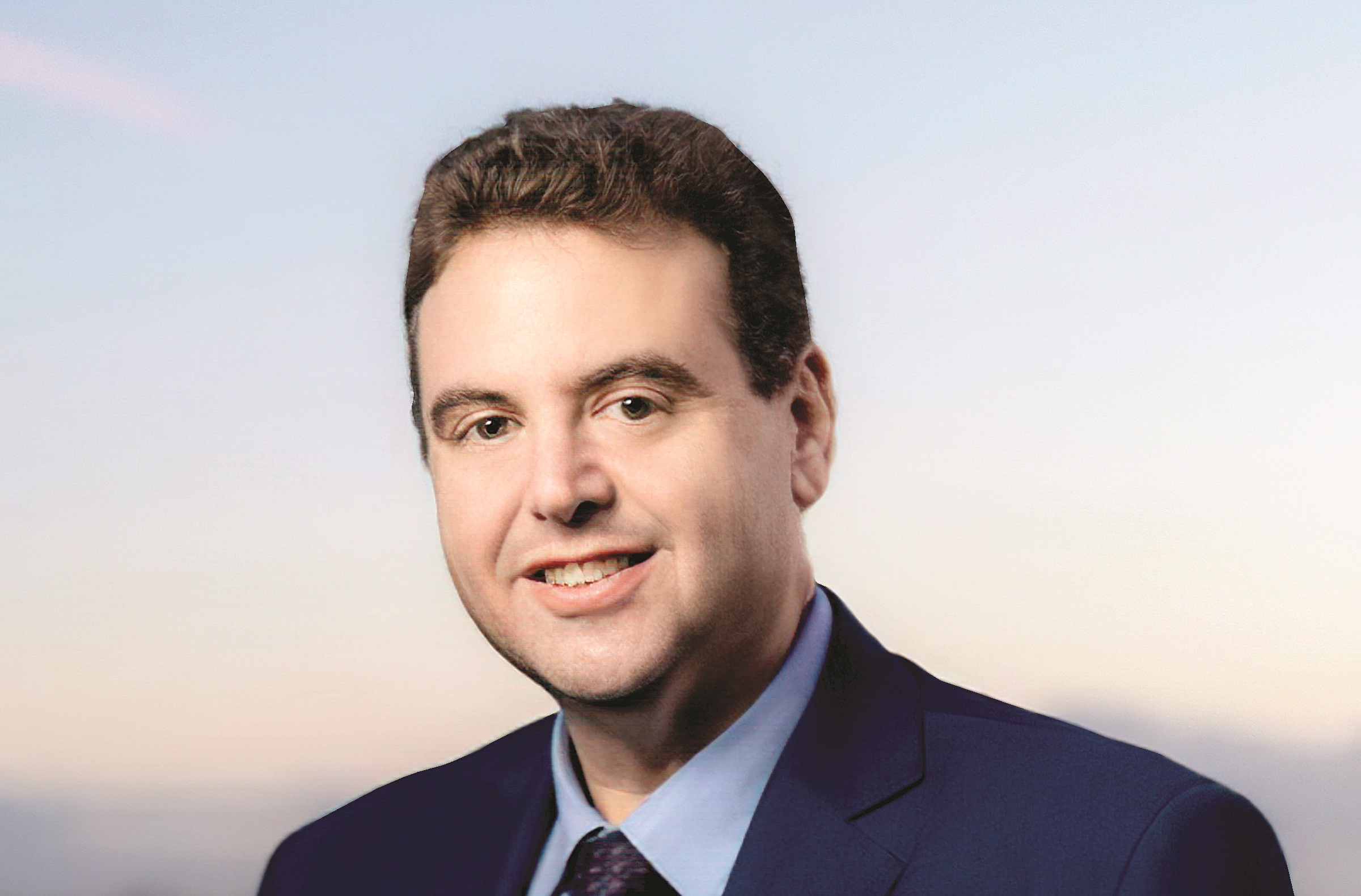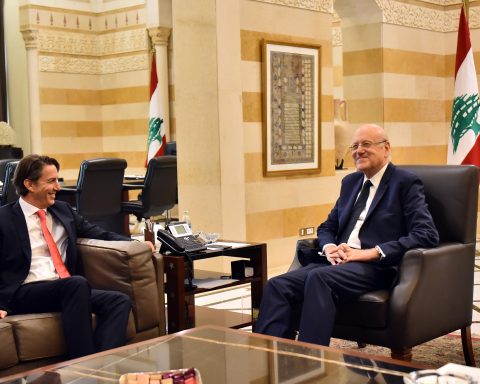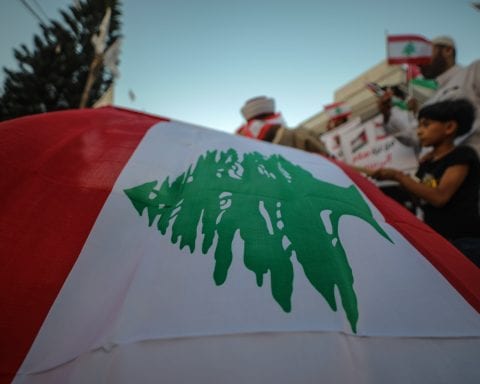Abdennour Toumi: How would you assess President Emmanuel Macron’s MENA foreign policy?
Prof. Karim Emile Bitar: Shortly after he announced his candidacy for the presidential elections, in early 2017, Macron visited Beirut where he gave his first major foreign policy speech at the ESA Business School, which was inaugurated by former president Jacques Chirac in the 90s. This speech was interesting, due to the fact that he touched upon a series of subjects. What he said then can be considered a cornerstone of what would later become the “Macron Doctrine” in French foreign policy. What he said was that he wanted to inscribe himself in what he called the Gaullo-Mitterandian filiation. In French foreign policy, Gaullo-Mitterandism is a school of thought that considers it important to follow in the footsteps of Charles de Gaulle and François Mitterand in the sense that France should always have a distinct voice in the international arena and not be directly aligned with US foreign policy. So, it was significant that Macron defined himself as a Gaullo-Mitterandist, and that he implicitly criticized the foreign policy of his predecessors, such as Nicolas Sarkozy and François Hollande. Macron made it known that he was uncomfortable with the neo-conservative bent that French foreign policy took between 2007 and 2017. On the question of interventionism, Macron is not reluctant to intervene as a matter of principle, however, but he considers that interventionism, if not properly thought, could be quite dangerous.
Also, in his Beirut speech, Macron stated that, in the case of Syria, France had made a mistake when it considered that bringing down the Assad regime should be a prerequisite to anything else. He tried to find a balance between realpolitik and idealism. He mentioned the Arab revolutions, saying that France should be able to talk with all parties in the Middle East in order to contribute to establishing peace, while also stating that France had maybe forgotten this role in the preceding few years. Basically, he was trying to find a proper balance, while also expressing his divergence from the former neo-conservative temptations and from what he called the “guilty fascinations » that some might have toward certain regimes. He was referring to the fascination of some French right-wing politicians for authoritarian regimes, such as the Assad regime. Macron said that France’s main objective in Syria should be to fight ISIS/Daesh, but that it should also not strike a deal with Assad, who is a failed leader. Just like in French domestic politics, Macron was an adept of the “en-meme-temps” (ENG: at the same time) strategy in foreign policy. Whenever he tried to define his policies, he tried, albeit often unsuccessfully, to find a balance between lofty ideals and the cold hard realities on the ground.
After his election, Macron faced a series of crises in the MENA region. He devoted a significant amount of time to the Lebanese crisis, which began in 2019 with an unprecedented popular uprising. In August 2020, following the Beirut port explosion, Macron traveled to Lebanon twice with the intention to convey the message that France remained committed to Lebanese stability, and he pushed for the French initiative in Lebanon, intending to allow the formation of a government made up of independent reformist figures. However, even though mosty Lebanese welcomed Macron’s visit at a time when they felt alone and abandoned, he might have underestimated the ability of the Lebanese political establishment to lie and deceive Western politicians. As a result, Macron’s initiative did not necessarily obtain the results he was expecting.
Abdennour Toumi: Moral-Politik naturally is France’s foreign policy principle. What made President Emmanuel Macron shift from realism to idealism, if not surrealism, notably in his MENA foreign policy?
Prof. Karim Emile Bitar: I would say that what is observed was not a shift, but more of an attempt to merge realism and idealism. Shortly after he was elected, Macron realized that it was not easy to shift French foreign policy from one viewpoint to another. So, like his predecessors, he was often accused of giving top priority to stability at the expense of the promotion of democracy and human rights. A clear example of this is France’s support of Abdel Fattah el-Sisi in Egypt, even though there are, according to Human Rights organizations, more than 60,000 political prisoners and that the human rights situation in the country deteriorated considerably. As a result, some people in France think that Macron has continued the foreign policy of his predecessors and even returned to the policies observed prior to the Arab revolutions of 2011, which put short-term stability as an absolute priority. In the meantime, France also got entangled in an intense proxy war in Libya, which was, to a large extent, the result of the poorly organized intervention of his predecessor, Nicolas Sarkozy.
Initially, France missed the train of the 2011 revolutions in Tunisia and Egypt, respectively. In the case of Libya, France went to the other extreme and got involved militarily in the country, which then led to disastrous consequences. Let us not forget that initially, when Tunisians began protesting peacefully against the Ben Ali regime, France was not happy. One of France’s ministers had even proposed in parliament to send police forces to help Ben Ali tame the revolution. Thus, France was accused of propping up authoritarianism, rather than giving support to the Arab youth who were protesting against a kleptocratic police state. The same happened in Egypt when France was initially not supportive of the ousting of Hosni Mubarak until it was clear that the Mubarak regime was going to fall and that the mass protests were widely supported by Egyptian youth and by the Arab public opinion at large. Only then did France accept the demise of Mubarak.
Consequently, when he was criticized for his idle stance in the Tunisian and Egyptian cases, Sarkozy may have overreacted in Libya and rapidly conducted a military intervention. Initially, the United Nations adopted Resolution 1973 which was aimed to protect the citizens of Benghazi who were under threat. Later, France, along with the US and the UK, gave an extensive and abusive interpretation of UN Resolution 1973 through an op-ed written in the New York times by Sarkozy, Obama, and Cameron, which supported regime change. and constituted a shift from the R2P framework initially used. The Libyan intervention brought back the use of force to the Middle East, contrary to the peaceful demonstrations that took place during the revolutions in Tunisia and Egypt. We are still paying the price for Sarkozy’s mistakes, to this day.
To be fair, the intervention in Libya was a classic Catch-22. Not having intervened could have led to terrible consequences and Gaddafi might have crushed the uprising. Gaddafi was very angry because the Ben Ali and Mubarak regimes were toppled. So, he might have destabilized their respective nations. On the other hand, intervening in Libya was also problematic due to it leading to a process of fragmentation and division and because it reintroduced martiality and force. As Obama later confessed, it was one of the major mistakes of his presidency, for which he blamed Sarkozy and Cameron, who poorly handled the aftermath of the revolution.
Abdennour Toumi: How do you interpret the “abnormal” relations between Algeria and France, in light of the ongoing diplomatic moral crisis between Algiers and Paris?
Prof. Karim Emile Bitar: The relationship between France and Algeria is arguably one of the most complicated files in French foreign policy. France has had a lot of difficulties in facing the dark chapters of its history, the two most notable being the period of Vichy France and the War in Algeria. French historians refer to these two periods as “a past that does not pass,” implying that its consequences are still felt in contemporary politics. So, when it comes to France’s relations with Algeria, Macron initially tried to turn the page on the Algerian War of Independence, acknowledging that colonization is a crime against humanity. Macron was harshly criticized by the French right-wing parties for his aforementioned comments. However, after he realized that he did not have partners in Algeria and that the Algerian regime was still unwilling to start a process of democratic transition, Macron began using harsher words towards the Algerian regime, leading to the deterioration of bilateral relations as seen today.
Abdennour Toumi: Lebanon, Iraq, and Sudan are facing serious political and economic uncertainty, how would this play out in the near future in these countries?
Prof. Karim Emile Bitar: I think that starting in 2019, we have seen movements in Sudan, Algeria, Lebanon, and Iraq that aim to rekindle the flame of the Arab revolutions of 2011. We have seen people, trade unions, women’s associations taking to the streets aiming to trigger a significant structural change in these countries. However, they have faced a different geopolitical context than that of the 2011 revolution, because we are currently in the midst of a violent, full-fledged counter-revolution that has triumphed in most Arab countries, with the latest coup in Sudan being a nail in the coffin of the Arab revolutions. We can also add the latest political developments in Tunisia in this context, with the personalization of power by Kais Saied. It is no longer a velvet counter-revolution, but clearly a return to autocracy.
Today, 10 years after the beginning of the so-called Arab Spring, we can say that the counter-revolution triumphed in most countries, though I believe this is only temporary. With every revolution, a counter-revolution starts the day after the demise of the autocrat. The fact that the counter-revolution has triumphed everywhere, with the Egyptian military coup in 2013 being a turning point, signifies that we no longer have the same enthusiasm we had in 2011. This does not mean this counter-revolution will be permanent and that the spirit of the revolutions will not appear again, because youths in most countries are still determined to bring about political change.
Abdennour Toumi: How can the right-wing politicians and media in France break their Eric Zemmour Stockholm syndrome?
Prof. Karim Emile Bitar: We are witnessing a significant radicalization in France. In fact, even center-right politicians today are trying to follow in Zemmour’s footsteps and are making increasingly radical proposals on Islam and immigration. Eric Zemmour symbolizes the zeitgeist of the dark days we live in. He has understood that there is a global aspiration for a return to authoritarianism and moral order, and he has adopted a narrative that is quite popular, framing everything through the culturalist and essentialist prism of the clash of civilizations. This was predicted many years ago by the late historian of ideas Daniel Lindenburg in a couple of books analyzing the rightward drift. I think this will be a difficult cycle to break because it is not specifically French but a global phenomenon as seen in the US with Trump, in the UK with Brexit, in Brazil with Bolsonaro, and in India with Narendra Modi. Throughout the world, the ideas of the enlightenment are now under assault.














